International Policy
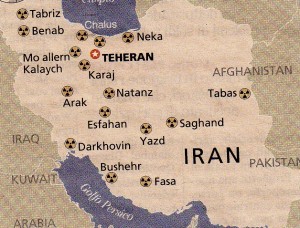 La Russia è fortemente preoccupata per la situazione nel Golfo Persico. La sua diplomazia si muove per evitare l’irreparabile. Il rischio di una nuova guerra è alto. Un attacco israeliano all’Iran “sarebbe un errore molto grave dalle conseguenze imprevedibili”, ha sottolineato Serghej Lavrov. Serve, ha spiegato il ministro degli Esteri russo, una decisa iniziativa per tornare al tavolo dei negoziati ed uscire dall’attuale vicolo cieco. Il monito di Mosca giunge, quando pare che un’azione militare dei cacciabombardieri con la stella di Davide contro una decina di installazioni atomiche iraniane sia ormai questione di ore.
La Russia è fortemente preoccupata per la situazione nel Golfo Persico. La sua diplomazia si muove per evitare l’irreparabile. Il rischio di una nuova guerra è alto. Un attacco israeliano all’Iran “sarebbe un errore molto grave dalle conseguenze imprevedibili”, ha sottolineato Serghej Lavrov. Serve, ha spiegato il ministro degli Esteri russo, una decisa iniziativa per tornare al tavolo dei negoziati ed uscire dall’attuale vicolo cieco. Il monito di Mosca giunge, quando pare che un’azione militare dei cacciabombardieri con la stella di Davide contro una decina di installazioni atomiche iraniane sia ormai questione di ore.
Almeno è questo che si è desunto dalle parole chiarissime del presidente israeliano Shimon Peres, che parla di “attacco probabile”. L’’Aiea, l’agenzia internazionale per il controllo dell’energia atomica, ha appena pubblicato un rapporto sull’Iran. Alcuni suoi stralci erano stati, però, già resi noti da un quotidiano statunitense nei giorni scorsi.
Teheran si sarebbe presa gioco della comunità internazionale e le sanzioni della Nazioni Unite non sarebbero servite a nulla. Le prove definitive sul carattere militare del programma atomico degli ayatollah sarebbero la creazione al computer di testate nucleari e le fotografie scattate dai satelliti di un enorme container di acciaio usato per test ad alta capacità esplosiva. In Russia si discute del ruolo chiave svolto dall’esperto “sovietico” Vjaceslav Danilenko, che avrebbe anche insegnato agli iraniani a sviluppare detonatori ad alta precisione. Con lui hanno collaborato al programma militare specialisti pakistani e nord coreani.
Un giornale russo ha tentato di identificare questo Vjaceslav Danilenko. Ve ne sono due – con identico nome e cognome, ma diverso patronimico – che lavorano in questo campo: uno ucraino, l’altro russo. L’ucraino ha negato di avere mai avuto rapporti con l’Iran. Il secondo, invece, avrebbe avuto contatti con Teheran negli anni Cinquanta. L’opinione diffusa a Mosca è che la fuga di notizie dagli Usa sia stata non casuale e che l’Iran non ha ancora sviluppato capacità militari.
Qualche mese fa la Russia, dopo anni di ritardi, ha consegnato la centrale atomica ad usi civili di Bushehr, la prima in funzione in Iran. Gli americani avevano espresso la loro contrarietà, ma Mosca ha fornito ampie rassicurazioni al riguardo.
Stando ad alcuni analisti militari gli Stati Uniti, ancora infuriati per il recente fallito complotto iraniano organizzato per uccidere l’ambasciatore saudita a Washington, potrebbero appoggiare l’azione israeliana dalle portaerei dislocate nel golfo Persico.
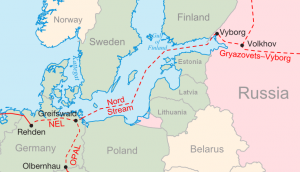 Il Sogno della Gazprom si è finalmente realizzato. Russia e Germania sono adesso unite da un gasdotto che evita il passaggio su territori dei riottosi vicini.
Il Sogno della Gazprom si è finalmente realizzato. Russia e Germania sono adesso unite da un gasdotto che evita il passaggio su territori dei riottosi vicini.
Il Nord Stream entra in funzione alla presenza del presidente russo Medvedev e del cancelliere tedesco Merkel. Il costo per costruire i 1223 chilometri di pipeline sotto al mar Baltico è stato di 8,8 miliardi di euro. Alcuni leader nazionalisti polacchi hanno definito questa megaopera tecnologica un nuovo “patto del diavolo” come quello tra Molotov e Ribbentrop dell’agosto 1939. Ma tutti i Paesi baltici in generale hanno espresso preoccupazione.
La Russia alleggerisce così la sua dipendenza dal transito attraverso l’Ucraina per rifornire i ricchi mercati europei. Il progetto gemello, il South Stream, sotto al mar Nero è ancora in fase di organizzazione. L’accordo per la realizzazione del Nord Stream è stato firmato nel 2005. Tra un anno verrà finito di costruire un secondo ramo. A pieno regime ognuno delle due condotte avrà una capacità di 27,5 miliardi di metri cubi l’anno.
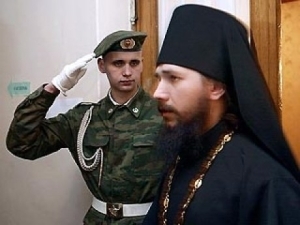 For the first time in the history of modern Russian Army Forces a training for priests and military officials has been organized. The event takes place in the southern city of Rostov-on-Don and it is attended by army chaplains, who have already started working with troops, and by military officials of the Department for relationship with religious soldiers. The main issue of the meeting is to collect requirements and recommendations for dealing with religious people in the Army.
For the first time in the history of modern Russian Army Forces a training for priests and military officials has been organized. The event takes place in the southern city of Rostov-on-Don and it is attended by army chaplains, who have already started working with troops, and by military officials of the Department for relationship with religious soldiers. The main issue of the meeting is to collect requirements and recommendations for dealing with religious people in the Army.
On July 21, 2009 President Dmitry Medvedev supported the initiative of the leaders of the major Russian religious communities to recreate the institution of military clergy abolished in 1918. According to the following approved program in the Russian Army there will be 240 staff positions of priests and nine civilian positions to coordinate chaplains’ activity. Since the beginning of 2011 the Black Sea Fleet and the Russian military bases in the republics of Abkhazia, South Ossetia and Armenia have their own religious personnel.
Переговоры по ПРО «зашли в тупик».
24 Oct 2011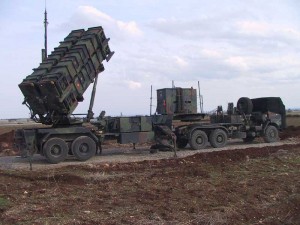 «Проблему ЕвроПРО поднимали сенаторы США при утверждении на должность нового посла США в Москве Майкла Макфола, который, кстати, заявил на Капитолийском холме, что переговоры между Россией и США по вопросу ПРО «зашли в тупик». Внешнеполитическое ведомство России крайне резко отреагировало на решение Вашингтона и Мадрида разместить еще одну американскую противоракетную базу в испанском порту Рота в составе четырех кораблей с системой «Иджис» и ракетами-перехватчиками СМ-3. МИД заявил, что происходит неприемлемое существенное наращивание американского противоракетного потенциала без коллективного обсуждения этого процесса и учета мнения всех заинтересованных сторон, а это может повлиять на стабильность и безопасность в Евроатлантике….
«Проблему ЕвроПРО поднимали сенаторы США при утверждении на должность нового посла США в Москве Майкла Макфола, который, кстати, заявил на Капитолийском холме, что переговоры между Россией и США по вопросу ПРО «зашли в тупик». Внешнеполитическое ведомство России крайне резко отреагировало на решение Вашингтона и Мадрида разместить еще одну американскую противоракетную базу в испанском порту Рота в составе четырех кораблей с системой «Иджис» и ракетами-перехватчиками СМ-3. МИД заявил, что происходит неприемлемое существенное наращивание американского противоракетного потенциала без коллективного обсуждения этого процесса и учета мнения всех заинтересованных сторон, а это может повлиять на стабильность и безопасность в Евроатлантике….
Одна из дискуссий состоялась недавно в Брюсселе. Там заседала совместная российско-американская Группа технических экспертов по сотрудничеству в области ПРО…отношения между Россией и США все еще базируются на взаимном ядерном сдерживании. Однако политика «перезагрузки» подталкивает Вашингтон и Москву к «стратегической кооперации», основанной, согласно заявлению президентов Дмитрия Медведева и Барака Обамы, на «взаимном доверии, открытости, предсказуемости и сотрудничестве». …американская система ПРО в Европе может как внести вклад в общее дело, так и похоронить его в случае ненахождения взаимоприемлемых решений и отказа от сотрудничества. При развитии событий по негативному сценарию мир ожидает новая гонка вооружений. В то же время сотрудничество по ПРО, напротив, сможет повысить транспарентность и доверие…
Кроме общеполитических рекомендаций, в совместном заявлении российско-американской группы экспертов приводятся конкретные предложения по осуществлению практического сотрудничества. Одно из таких предложений – вернуться к вопросу создания Совместного центра обмена данными (СЦОД) не только российско-американского, но и, возможно, европейского, в рамках сотрудничества Россия–НАТО…
Наряду с предложениями предлагается возобновить проведение совместно командно-штабных учений (КШУ) по ПРО, за которыми могли бы последовать совместные полевые учения. …
Серьезное сотрудничество не может работать без доверия. Поэтому позиция России полностью понятна и проста, когда она требует от своих партнеров по совету Россия–НАТО предоставления твердых, в том числе юридически обязывающих гарантий, что разрабатываемая и развертываемая в Европе ПРО не будет подрывать ответный ракетно-ядерный потенциал СЯС России. При этом необходимо понимать, что ЕвроПРО является сегментом глобальной ПРО США…
Российские и американские ученые говорили также и о том, что у переговоров России с США/НАТО есть еще одно измерение – отношение к американским планам усиления их противоракетного потенциала со стороны третьих стран. Например, Индия уже активно разрабатывает свою систему ПРО, обратившись за содействием к США и Израилю. Программы создания ПРО осуществляют Япония, Тайвань и Южная Корея в сотрудничестве с США. Китай также вынужден решать вопрос о разработке систем ПРО…».
Статья – Виктор Литовкин – Независимое военное обозрение 21.10.2011
Russian concern about growing Chinese influence in the former Soviet Union and particularly Central Asia is increasing. Putin’s desire to form a new Eurasian Union is an effort by Moscow to reassert authority over its old dominions.
The core of Kremlin’s concerns is the slow but steady progress of the Shanghai Cooperation Organization — China, Kazakhstan, Kyrgyzstan, Russia, Tajikistan, Uzbekistan. In the last 10 years the S.C.O. has evolved into something different from what it was created. Now it is honing in on regional development.
Russia feels like a junior partner in the S.C.O. Using its money, China has secured energy contracts, and infrastructure. Beijing has also established Confucius Institutes to teach Chinese in all the Central Asian states. Growing numbers of Central Asian students can be found at Chinese Universities.
Article – Raffaello Pantucci, Alexandros Petersen – New York Times
Россия может проиграть весь Ближний Восток.
17 Oct 2011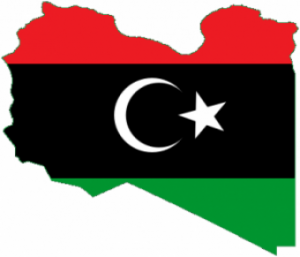 «Итальянцы не должны пустить русских в Ливию!» — вот суть конфиденциальных документов, написанных в апреле 2008 года послом США в Италии Рональдом Спольи. Сейчас, в период коварной борьбы за выгодные контракты в африканской стране среди иностранных государств-победителей, они каким-то образом попали в редакцию туринской газеты. В принципе в этих бумагах нет ничего неожиданного. Американцы и ряд европейских стран обеспокоены энергобезопасностью Старого Света и не доверяют России. Особенно теперь, когда уже ясно, кто будет сидеть в Кремле.
«Итальянцы не должны пустить русских в Ливию!» — вот суть конфиденциальных документов, написанных в апреле 2008 года послом США в Италии Рональдом Спольи. Сейчас, в период коварной борьбы за выгодные контракты в африканской стране среди иностранных государств-победителей, они каким-то образом попали в редакцию туринской газеты. В принципе в этих бумагах нет ничего неожиданного. Американцы и ряд европейских стран обеспокоены энергобезопасностью Старого Света и не доверяют России. Особенно теперь, когда уже ясно, кто будет сидеть в Кремле.
Реконструировать ливийский сценарий очень непросто — это мозаика не только со многими отсутствующими, но и с фальшивыми элементами. ….
Россия в апреле 2008 года списала долги Каддафи и поменяла их на некоторые выгодные контракты для своих компаний. Часть из соглашений — военная, и вряд ли она будет соблюдена новой властью Триполи. Также из-за своей позиции на протяжении гражданского конфликта 2011 года Москва наверняка окажется без явных союзников в Ливии и среди победителей.
Впрочем, большая ливийская игра только начинается. Пока превосходство в энергосекторе у ЭНИ (которая еще в 2006 году подписала соглашение о международном стратегическом партнерстве с «Газпромом»). Французы, британцы и американцы смотрят, наоборот, не столько на настоящие, сколько на огромные будущие возможности этой африканской страны. Эксперты предполагают, что ее запасы энергоресурсов в десять раз больше, чем предполагалось. Если это действительно так, то Ливия станет для Европы настоящим альтернативным поставщиком в конкуренции с Востоком. Вот в чем причина нежелания Вашингтона видеть русских в Триполи. Но нежелание — это одно, а что же в реальности?
В реальности, чтобы выиграть будущие международные тендеры в Ливии, надо в первую очередь гарантировать качество и надежность. А в этих вопросах у российских компаний часто возникали проблемы. Одно слово: конкурентоспособность. Популярные в вашей стране истории о том, что, мол, никто не любит Россию, на самом деле выдумки. При глобализации сфер влияния больше не существует. Просто, чтобы побеждать, надо быть лучшим.
Западные аналитики сейчас пытаются понять, какова внешняя политика России на Ближнем Востоке и ее отношение к «арабской весне». Пока это не очень ясно. Многих удивляют ошибки, которые допускает Россия, — сначала в Ливии, а теперь и в Сирии. Понятно, что Дамаск традиционно являлся союзником Москвы. Но мир быстро меняется. И на Западе уже есть мнение, что мы наблюдаем «закат России» в ближневосточном регионе. А ее место готова занять невероятно внешнеполитически активная Турция».
Статья – Джузеппе Д’Амато Московский Комсомолец № 25768 от 11 октября 2011 г. Giuseppe D’Amato Moskovskij Komsomolets.
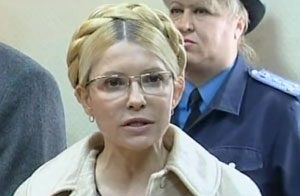 Colpevole e condannata a sette anni di carcere. Il giudice non aveva ancora finito di leggere la sentenza che Julija Timoshenko gridava già alle televisioni di tutto il mondo la sua rabbia. L’ex primo ministro ucraino è una donna tutta d’un pezzo. Con lei le mezze misure non valgono: o la si ama o la si odia. Nessun leader politico era mai riuscito a dividere in simil maniera l’Ucraina. “Assistiamo ad un nuovo 1937 – ha urlato in tivù la Timoshenko, indignata, dopo che, per un paio d’ore, aveva sorriso nervosamente ai presenti in aula -. Ucraini, alzatevi e lottiamo insieme contro la dittatura. Porterò il mio caso alla Corte europea dei diritti umani”.
Colpevole e condannata a sette anni di carcere. Il giudice non aveva ancora finito di leggere la sentenza che Julija Timoshenko gridava già alle televisioni di tutto il mondo la sua rabbia. L’ex primo ministro ucraino è una donna tutta d’un pezzo. Con lei le mezze misure non valgono: o la si ama o la si odia. Nessun leader politico era mai riuscito a dividere in simil maniera l’Ucraina. “Assistiamo ad un nuovo 1937 – ha urlato in tivù la Timoshenko, indignata, dopo che, per un paio d’ore, aveva sorriso nervosamente ai presenti in aula -. Ucraini, alzatevi e lottiamo insieme contro la dittatura. Porterò il mio caso alla Corte europea dei diritti umani”.
L’ex premier è stata condannata per abuso di potere e malversazione. Nel gennaio 2009, dopo l’ennesima guerra del gas con Mosca condita da estenuanti trattative, ha concordato con Putin un contratto che avrebbe procurato all’Erario nazionale circa 200 milioni di dollari di danni.
L’esito del processo, secondo numerosi specialisti, era scontato. Gli oligarchi ucraini, a suo tempo, avrebbero promesso di fargliela pagare all’“eroina” della rivoluzione “arancione” dell’autunno 2004. Troppe volte la Timoshenko, in carica come primo ministro, aveva messo loro i bastoni tra le ruote, facendo perdere importanti affari. Ed il presidente Janukovich, suo acerrimo nemico, è il paladino di alcuni di questi oligarchi.
Alle notizie provenienti da Kiev, pronte sono state le reazioni negative di Unione europea e Russia. Bruxelles, attraverso un portavoce comunitario, ha messo in chiaro che questo verdetto rischia di compromettere la decisione di concedere all’Ucraina lo status di Paese associato all’Ue. “Non capisco perché le abbiano dato sette anni”, ha osservato il premier Putin, che ha rimarcato ironicamente che come cifra (sette) non è male. La Timoshenko, ha ricordato il leader russo “non è un’amica, ma un avversario politico, poiché è sempre stata orientata verso Occidente”.
Adesso vi è il serio pericolo che ricominci lo scontro tra Kiev e Mosca per il gas con tutte le conseguenze del caso per gli approvvigionamenti europei. L’80% del metano russo diretto all’Ue passa appunto per l’ex repubblica sovietica. Il presidente Janukovich ha già reso noto di volere assolutamente ridiscutere il contratto siglato dalla Timoshenko nel 2009.
Sullo sfondo di questa resa dei conti interna vi è la lotta per la collocazione geopolitica della strategica Ucraina. Putin la vuole a tutti i costi all’interno della prossima nascente Unione eurasiatica, che dovrebbe controbilanciare ad Est l’Ue. Senza Kiev, Mosca lo sa bene, non si può ricostruire l’impero. Di certo non l’Urss, ma un gruppo economico compatto, in grado di competere al tempo della globalizzazione. Il progetto unionista è centrale nel programma del terzo mandato presidenziale di Vladimir Putin. Janukovich sa perfettamente che gli ucraini non ne vogliono più sapere di Mosca e guardano ad Occidente, ma l’Ue si intestardisce a tenere chiuse le sue porte.
Tornando al verdetto di Kiev, l’ex presidente Jushenko ha affermato che quello della Timoshenko “non è un processo politico”. L’ex premier non si consultò con lui per la firma dell’accordo coi russi. Janukovich ha invece tentato di buttare acqua sul fuoco, asserendo che il giudice ha compiuto il suo dovere applicando il vecchio Codice del 1962. L’ex premier, che viene chiamata la “Khodorkovskij” ucraina ha, però, la possibilità dell’appello.
Tusk contro Kaczynski. Il liberale contro l’ultra conservatore. Il moderno filo-occidentale, attualmente leader semestrale di turno dell’Unione europea, contro l’euroscettico, che critica pesantemente i nemici storici tedeschi e russi.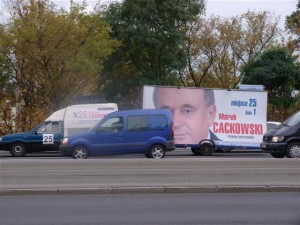
I polacchi, che appaiono sempre più divisi tra coloro che godono del boom economico di questi anni e chi invece si è ulteriormente impoverito, scelgono tra due visioni opposte. Non è un caso che il premier Donald Tusk abbia chiuso la sua campagna elettorale incontrando a Varsavia migliaia di ragazzi nel rinnovato stadio nazionale, simbolo della Polonia post comunista e fiore all’occhiello di Euro 2012. Jaroslaw Kaczynski, al contrario, ha preferito partecipare ad un pranzo tradizionale in provincia, ospite di una semplice famiglia. Città contro campagne, dunque. Giovani contro generazioni più mature.
Venerdì sera colpiva il visitatore straniero osservare il contrasto tra una decina di anziani con le candele in mano raccolti in preghiera davanti al palazzo presidenziale in ricordo dei morti della tragedia aerea di Smolensk dell’aprile 2010, mentre tutto intorno bar e ristoranti, pieni all’inverosimile di persone mezze ubriache appartenenti alla classe media, sparavano musica a tutto volume.
In queste tese settimane Tusk ha parlato di economia, di riforma delle pensioni, di controllo del deficit di bilancio e del debito (addirittura il 55% del Pil!). Il Paese, che sta gestendo le trattative per il bilancio continentale UE 2014-2020, è prossimo a nuove privatizzazioni ed alla costruzione di altre infrastrutture, finanziate sempre con i fondi europei (67 miliardi di euro nel precedente bilancio UE, forse 81 nel prossimo). Durante il suo premierato gli stipendi medi sono aumentati del 18%, la Polonia cresce da un decennio al ritmo del 3% ed è l’unico Stato Ue a non essere caduto in recessione nel 2009.
Jaroslaw Kaczynski, che non ha perso la sua bellicosità dopo la tragica morte del fratello-gemello presidente Lech a Smolensk, ha ribattuto punto su punto, aiutato dai candidati del suo partito Legge e Giustizia. Non ha, però, mancato di risvegliare i vecchi fantasmi, affermando che la Merkel è diventata cancelliera anche grazie alla Stasi, i servizi segreti della DDR.
L’ago della bilancia della partita potrebbero essere gli altri contendenti. Solo 5 formazioni – affermano sondaggi contrastanti – dovrebbero superare la barriera del 5%, per avere una rappresentanza parlamentare. Molto dipenderà dal tasso di affluenza alle urne e dalla performance di PSL, alleato di coalizione di Piattaforma civica di Tusk, mentre sorprende la forza della Lista “anticlericale” di Janusz Palikot a scapito dei socialdemocratici di SLD.
Se Piattaforma civica vincerà sarà il primo partito dal 1989 ad ottenere due mandati consecutivi. La paura della classe media nazionale e della Commissione europea è, però, che inizi un periodo di instabilità politica anche in Polonia. Un altro mal di pancia per Barroso e company non ci vorrebbe proprio!
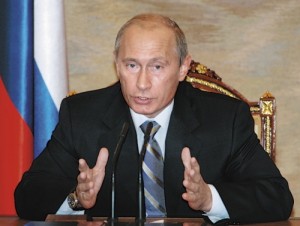 «1 января 2012 года начинает свою работу Единое экономическое пространство России, Белоруссии и Казахстана. И в преддверии этого события Владимир Путин поставил свою подпись под программной статьей с многообещающим названием « Новый интеграционный проект для Евразии — будущее, которое рождается сегодня».
«1 января 2012 года начинает свою работу Единое экономическое пространство России, Белоруссии и Казахстана. И в преддверии этого события Владимир Путин поставил свою подпись под программной статьей с многообещающим названием « Новый интеграционный проект для Евразии — будущее, которое рождается сегодня».
Если вкратце, то россиянам обещан новый союз — правда не Советский, а Евразийский. Составить его ядро должны нынешние члены «клуба на троих» – Москва, Астана и Минск….
Внешнеполитический курс ВВП можно и нужно за многое ругать. Но упорное путинское стремление вновь запустить в бывшем СССР интеграционные процессы — это то, что полностью отвечает нашим национальным интересам.
Мы живем в эпоху грандиозных геополитических сдвигов в Евразии. Великий спящий мировой политики — Китай – очнулся и с каждым годом все более уверенно играет мускулами. Исламский фундаментализм стал для начала ХХI века тем, чем коммунизм был для первой половины века ХХ: воинственная идеология словно лесной пожар захватывает все новые и новые территории…
Если Россия махнет рукой на ближнее зарубежье и будет сидеть сложа руки, нам попросту сомнут. Надеяться по старинке, что « никуда они от нас не денутся» – верх глупости и самонадеянности. Денутся и еще как. Но просто бороться с « происками мирового империализма» – тоже не выход. Лучшая оборона — это наступление. А в наступать в этих обстоятельствах — предложить свою привлекательную интеграционную идею…
Этим летом я несколько раз был в Казахстане. И могу засвидетельствовать: таможенный союз — это тема разговоров номер один даже для людей, бесконечно далеких от политики. Механизмы таможенного союза запускаются один за другим. И это оказывает влияние на жизнь всех — от олигарха до простого работяги…
Но Путин и Назарбаев ( Лукашенко здесь в роли примкнувшего) упорно руководствуются принципом: « Не разбив яиц, не приготовишь яичницу». И их расчет понятен: чем большего размера единый рынок, тем больше возможностей для развития бизнеса. Проиграв сегодня в мелочах, вы завтра выиграете по крупному — вот что пытаются сказать своим народам Владимир Владимирович и Нурсултан Абишевич…
Почему же до самого недавнего времени в своих отношениях с Киевом Москва вела себя с точностью до наоборот? Напомню, что до рандеву Путина и Медведева с Януковичем в « Завидово» Украине говорилось до открытым текстом: хотите понижения цен на газ? Тогда либо вступайте в Таможенный союз, либо отдавайте нам свою газотранспортную систему! Иначе это будет иждивенчество!
Но как же тогда нам строить отношения с Киевом? Ведь без Киева любое интеграционное объединение в бывшем СССР будет оставлять ощущение неполноты…
…Евразийский союз будет строиться на универсальных интеграционных принципах как часть Большой Европы».
« Большая Европа» – это, конечно, очень сильное заявление. Рубежи интеграционного объединения Москвы, Астаны и Минска уходят далеко в глубь Азии. Покойный президент Франции генерал де Голль мечтал об « Европе от Атлантики до Урала». Но он трижды перевернулся в гробу, если бы ему сказали: « Месье генерал, теперь водораздел между Европой и Азией проходит по границе Казахстана и Узбекистана в районе города Чимкента».
Статья – Михаил Ростовский Московский Комсомолец № 25763 от 5 октября 2011 г. Mikhail Rostovsky Moskovskij Komsomolets
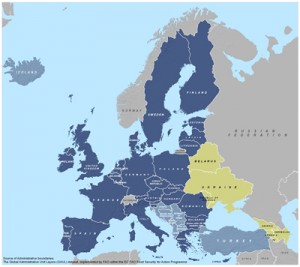
From EU site
The Heads of State or Government and representatives of the Republic of Armenia, the Republic of Azerbaijan, Georgia, the Republic of Moldova and Ukraine, the representatives of the European Union and the Heads of State and Government and representatives of its Member States have met in Warsaw on 29-30 September 2011 to renew their commitment to the objectives and continued implementation of the Eastern Partnership. The President of the European Parliament and the representatives of the Committee of the Regions, the Economic and Social Committee, the European Investment Bank and the European Bank for Reconstruction and Development were also present at the Summit.
The Prague Summit in May 2009 launched a strategic and ambitious Eastern Partnership as a specific dimension of the European Neighbourhood Policy, to further support Eastern European countries’ sustainable reform processes with a view to accelerating their politicalassociation and economic integration with the European Union. The agenda agreed in Prague contains the guiding principles of the Eastern Partnership, and the participants of the Warsaw Summit re-affirm their commitment to implement them fully.
The Warsaw Summit recognises that reinforced reform efforts serve a common interest, and need therefore to be applied in a spirit of shared ownership and mutual accountability. The Eastern Partnership is based on a community of values and principles of liberty, democracy, respect for human rights and fundamental freedoms, and the rule of law. All countries participating in the Eastern Partnership are committed to these values through the relevant international instruments. Any European Union Member State is also committed to them through the Treaty on European Union.
The participants of the Warsaw Summit acknowledge the European aspirations and the European choice of some partners and their commitment to build deep and sustainable democracy. They highlighted the particular role for the Eastern Partnership to support those who seek an ever closer relationship with the EU.
Much has been achieved already. Political and economic reforms have been implemented in partner countries and relations between the EU and its Eastern European partners have deepened significantly. There is more trade and economic interaction between the EU and its Eastern European partners than ever before. In order to consolidate this trend, the EU and most of its partners are engaged in negotiations on Association Agreements which will also lead to Deep and Comprehensive Free Trade Areas as soon as the conditions are met.
At the same time, they are engaged in progressing towards increased mobility across the continent. Dialogues on visa-free regimes have been launched with Ukraine and the Republic of Moldova. Visa-facilitation and readmission agreements are being implemented with Georgia and similar agreements will be sought with the Republic of Armenia, the Republic of Azerbaijan and the Republic of Belarus.
It is part of the essence of the Eastern Partnership to engage with all strands of societies, beyond governments. The Warsaw Summit welcomes the establishment of the Euronest Parliamentary Assembly, as well as the increased role of civil society, through the Civil Society Forum. It welcomes the creation of an Eastern Partnership Business Forum and of the Conference of Regional and Local Authorities of the Eastern Partnership.
Recognising and welcoming the progress made so far, the participants of the Warsaw Summit underlined that much remains to be done to reach the goals of the Eastern Partnership, including by adapting existing instruments of co-operation. In this regard, they welcomed the publication of the Communication of the High Representative and the Commission on the review of the European Neighbourhood Policy. Greater differentiation and mutual accountability will allow individual partners to better meet their aspirations, needs, and capacities. According to these principles, the pace of reforms will determine the intensity of the cooperation, and partners most engaged in reforms will benefit more from their relationship with the European Union, including closer political association, deeper gradual economic integration in the EU Internal Market and increased EU support. This entails support for civil society and social and economic development, as well as comprehensive institution-building, strengthening respect for human rights and the rule of law, greater market access, increased EIB financing in support of investments and greater facilitation of mobility in a well-managed and secure environment. The resolution of conflicts, building trust and good neighbourly relations are essential to economic and social development and cooperation in the region.
The participants agree that the Eastern Partnership must be significantly strengthened and commit to stepping up its implementation, with the objective of building a common area of democracy, prosperity, stability and increased interactions and exchanges. They also agree that the achievements and the progress of the Eastern Partnership must bring direct and clearly perceived benefits to the citizens of partner countries, and they commit to enhancing their efforts to make the Eastern Partnership visible to all.
—
The Heads of State or Government and representatives of the Republic of Armenia, the Republic of Azerbaijan, Georgia, the Republic of Moldova and Ukraine, the representatives of the European Union and the Heads of State or Government andrepresentatives of its Member States, are committed to the success and the development of the Eastern Partnership, and have therefore agreed to the following:
1. Adeeper bilateral engagement: Political association, Socio-Economic integration and Mobility.
2. Participation in EU programmes and Agencies and enhanced sector cooperation.
3. Strengthening of multilateral co-operation.
Full statement – Warsaw Summit – 29-30 September 2011
Welcome
We are a group of long experienced European journalists and intellectuals interested in international politics and culture. We would like to exchange our opinion on new Europe and Russia.
Categories
- Breaking News (11)
- CIS (129)
- Climate (2)
- Energy&Economy (115)
- EU Eastern Dimension (85)
- Euro 2012 – Sochi 2014 – World Cup 2018, Sport (43)
- Euro-Integration (135)
- History Culture (198)
- International Policy (261)
- Military (74)
- Interviews (18)
- Italy – Italia – Suisse (47)
- Odd Enough (10)
- Poland and Baltic States (126)
- Religion (31)
- Russia (421)
- Survey (4)
- Turning points (4)
- Ukraine (176)
- Российские страницы (113)
Archives
- November 2020
- October 2020
- September 2020
- August 2020
- July 2020
- May 2020
- April 2020
- March 2020
- January 2020
- December 2019
- November 2019
- October 2019
- September 2019
- August 2019
- July 2019
- June 2019
- May 2019
- April 2019
- March 2019
- February 2019
- December 2018
- November 2018
- October 2018
- September 2018
- August 2018
- July 2018
- June 2018
- May 2018
- April 2018
- March 2018
- February 2018
- January 2018
- December 2017
- November 2017
- October 2017
- September 2017
- August 2017
- July 2017
- May 2017
- March 2017
- January 2017
- December 2016
- November 2016
- October 2016
- September 2016
- July 2016
- June 2016
- May 2016
- April 2016
- February 2016
- January 2016
- November 2015
- October 2015
- September 2015
- June 2015
- April 2015
- March 2015
- February 2015
- January 2015
- December 2014
- November 2014
- October 2014
- September 2014
- August 2014
- July 2014
- June 2014
- May 2014
- April 2014
- March 2014
- February 2014
- January 2014
- December 2013
- November 2013
- October 2013
- September 2013
- August 2013
- July 2013
- June 2013
- May 2013
- April 2013
- March 2013
- February 2013
- January 2013
- December 2012
- November 2012
- October 2012
- September 2012
- August 2012
- July 2012
- June 2012
- May 2012
- April 2012
- March 2012
- February 2012
- January 2012
- December 2011
- November 2011
- October 2011
- September 2011
- August 2011
- July 2011
- June 2011
- May 2011
- April 2011
- March 2011
- February 2011
- January 2011
- December 2010
- November 2010
- October 2010
- September 2010
- August 2010
- July 2010
- June 2010
- May 2010
- April 2010
- March 2010
- February 2010
- January 2010
- December 2009
- November 2009
- October 2009
- September 2009
- August 2009
Our books




